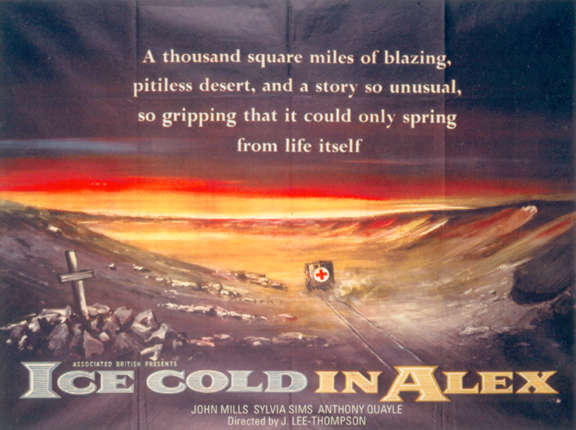20.12.11:
The Premise
First up, work out the basic premise in your head. Don’t worry about making it all make sense just yet, just worry about the main features of the story. At the very least you should have a strong set-up, a strong dénouement and a good title. Unfortunately for you, the best movie titles of all time, Ice Cold In Alex, There Will Be Blood and Snakes on a Plane have already been taken, so you’ll just have to think of another one.

At this point, if all you can think of is a single scene, you should really consider writing a short movie instead.
The Audience
This is important, possibly the most important thing about scriptwriting.
You need three things to tell a story: a story, a storyteller and an audience. Otherwise you’re just talking to the wall. It’s interesting that British people take so long to figure out you need an audience: Americans get onto this fact a lot quicker.
Before you write a single word, ask yourself “who will be the audience?”
If the answer is “art-house patrons” then congratulations! You’ve narrowed down your target market to less than 1% of the cinema-going public.
The British/Australian/Canadian/New Zealand film industries struggle enough, they don’t need even more crap clogging up the system and scaring off investors. Be realistic: it costs a MILLION DOLLARS to make a ‘cheap’ movie. For your idea to become a reality someone will have to feed, clothe and house dozens, maybe even hundreds of people for up to six months… AND THEN have to re-coup the all the money or you’ll never work in this town again etc.
As each person in the UK goes to the cinema (on average) once a year, your film about a woman who lives in a council estate in Salford, gets beaten by her husband and then kills herself is going to present something of a problem. Your magnum opus will be up against the likes of Spielberg, Clooney and Stratham.
If your idea is as niche as a novelty sex toy that only works if you’ve walked on the moon, you’d be MUCH better off writing for TV. You’ll not need to obsess over cutting a profit, you’ll reach a wider audience than you ever would via the cinema, you’ll reach the right demographic and hell, Stephen Poliakoff, Matthew Graham and Steven Moffat are three of my favourite writers. When it comes to capturing close, intimate, character-driven drama, TV is a far superior medium than the cinema.
Here’s a quick test you can run in your head: is this storyline something I’m likely to see in a soap opera? If the answer is yes, to paraphrase Layer Cake: you’re in the wrong f—ing business, son. If the answer is no, great! Welcome onboard, let’s write a blockbuster movie.
For your blockbuster to bust blocks you’re going to have to write to your audience. Regular cinema goers are heavily weighted towards 13 to 35 year old males. You’ll have much more luck selling your script and becoming an overnight millionaire if you target that key demographic. Failing that, if your audience is ‘children, but parents will be entertained as well’, this is also acceptable, especially if you’re writing for Pixar.
Just Start Writing
Okay, now, before you do anything else: START WRITING.
This is the hardest bit of the whole process. Just write, write anything, just fill the pages with words.
This is a bit like when you start to learn to drive and the instructor says ‘just drive’ and directs you onto the main road. Nerve-wracking I’m sure, but the kick-the-baby-out-the-nest-so-it-flies method is pretty much tried and tested around the animal kingdom, so of course it applies to driving lessons and creative writing as well.
Correct Formatting
An incorrectly formatted script will not be read by anyone but your mum.
In order get the formatting right, download a copy of Final Draft. If you fancy having a go on your own, the only font you’re allowed to use is Courier 12pt.
Your script should start with the words ‘FADE IN:’ tabbed over to the far right. Then you’ve got the scene heading, always written something like this:
INT. MORGAN’S HOUSE – DAY
EXT. MORGAN’S HOUSE – NIGHT
I/E. MORGAN’S CAR – THE NEXT DAY
You must put whether the scene is INT. (interior) or EXT. (exterior) or I/E. (both) and make it clear whether it is day or night (a throwback to the days when each of these set-ups would require different film stocks). You can also get away with using CONTINUOUS, MOMENTS LATER, MORNING or EVENING.
Then you’ve got the ‘blackstuff’: the action. If you want to conjure up a fantastically detailed world, write a book. The blackstuff should be kept to a minimum, as in Shakespeare. Apparently, the scripted directions for the 20 minute long flying fight scenes in Crouching Tiger, Hidden Dragon consisted of two words: “They Fight”. Details are up to the director, not you.
When a NEW CHARACTER is introduced his or her or its name is written in CAPITALS. Ditto for SOUND EFFECTS.
When people speak the correct format is:
GRAHAM
This is the correct format.Final Draft will do this for you automatically. It’s clever like that. It’ll also allow you to add (V.O) after the character name for Voice Over, (O.S) for a voice Off Scene, such as on the other end of a telephone line and (O.C) for Off Camera, for somebody in the scene whose face you maybe don’t want the audience to see.
You can also add a ‘wryly’, but I’d suggest you keep these to a bare minimum. A wryly is a scripted direction on how to say something.
RIPLEY
We’re all going to die.
HUDSON
(sarcastically) <– this is a ‘wryly’
Well that’s just jolly spiffing isn’t it? Man.
Bit pointless? Yesh Mish Moneypenny, I wouldn’t bother unless absolutely necessary, give the actors and director some credit. Each page of your script will equate to about 1 minute of screen time, so you should aim for about 100 pages. You have to write “FADE OUT.” justified to the right of the page at the end. That’s it, really.
So that’s all your major formatting points done. Keep your first draft diabolically simple. Write the script in chronological order and keep the dialogue plain and functional. You’ll be mucking about with it later.
If you get stuck on how to bridge the gap from one scene to the next, just skip the gap for now. Just get down everything that’s in your head on paper.
Your First Draft
What you’ll end up with will be 100-odd pages of something so shockingly bad you wouldn’t want it to use it as a doorstop lest you offended the door. This is your first draft. DON’T WORRY, they’re always bloody dreadful. Nobody in their right mind would turn the first draft of a script into a film.

Okay, now the real work begins. You’ve got your malformed, illogical, boring lump of clay. Now I want you to mould it into something beautiful.



